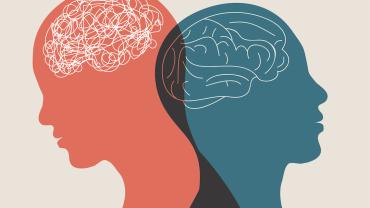
Inositol is a molecule found in most vegetable and animal cells that is closely related to the B vitamins. It is a precursor to second messengers for many signaling pathways in the human body. It is critical for signal transduction in many organs, including the brain, reproductive organs, and kidneys. Derivatives of inositol have been shown to support the structure and proliferation of cells.
Inositol has been studied for its potential to support glucose metabolism, oxidative stress, the inflammatory response, and certain aspects of reproductive health. Recent research suggests it may also help support mood health and a healthy response to psychological stress.
Research indicates that lowered inositol status in certain locations of the brain has been observed in conjunction with some mood disorders. A recently published review by Concerto and colleagues investigated the potential link between inositol and mood health. This comprehensive review explored recent animal and clinical studies to determine if supplementation with inositol may help support certain aspects of cognitive functioning.
A crossover, randomized controlled trial (n = 21) explored the potential efficacy of inositol in individuals with panic disorder. The researchers reported improvements in the Marks-Matthews Fear Questionnaire, Hamilton Anxiety Rating Scale total score, and the clinical global impressions (CGI) scale in the presence of inositol supplementation. However, the study period was relatively short (4 weeks), and the treatment intervention involved a very high dose in a small sample size. Clinical conclusions cannot be made from these data.
A randomized controlled trial investigated potential effect of inositol on symptoms and mood health in 71 menstruating individuals with premenstrual dysphoric disorder (PMDD). The study lasted for 6 menstrual cycles. The treatment group was shown to have significant improvements in the Hamilton Depression Rating Scale, Penn Daily Symptoms Record Scale, and CGI-Severity of Illness ratings.
Clinical research regarding the potential for inositol to help support mood health is still in its early days of study and the full mechanisms of action of inositol in the brain have yet to be elucidated. Many clinical studies included within the review by Concerto and colleagues did not report improvements in the presence of inositol. Study drawbacks include small sample sizes, short duration of treatment, and varying primary outcomes, rendering a meta-analysis that is difficult to achieve. Clinical conclusions cannot be made yet. However, evidence suggests that inositol may help support certain aspects of cellular health, antioxidative status, and endocrine health. Inositol may also help support certain aspects of cognitive and mood health, although more research is required.
By Dr. C Ambrose, ND, MAT